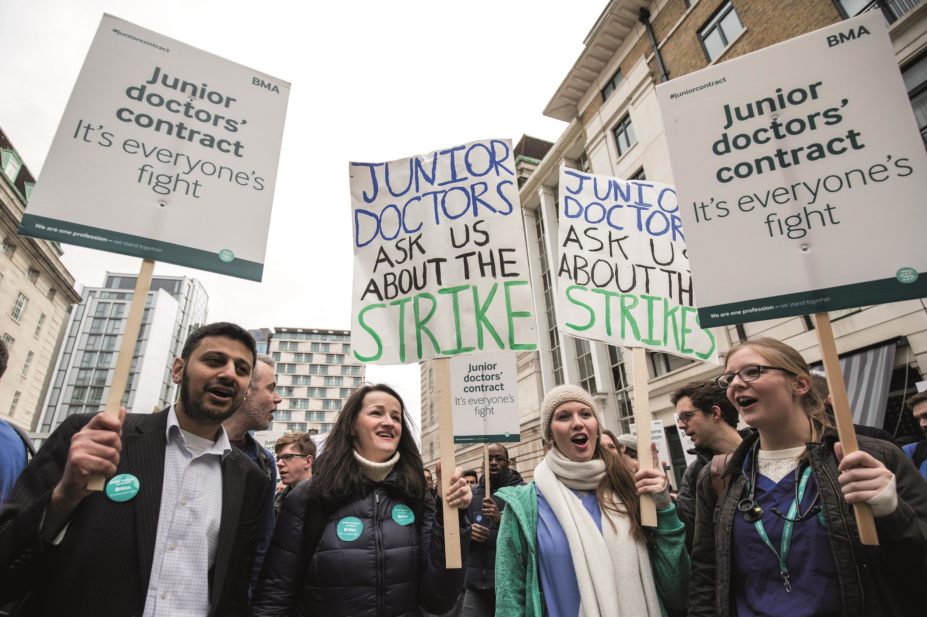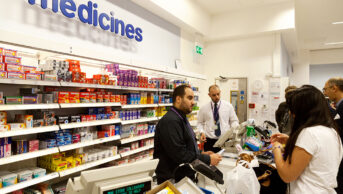
James Gourley / Rex / Shutterstock
Hospital pharmacists have expressed support for the 24-hour strike held on 12 January 2016 by junior doctors in England over their new contract — the first industrial action of its kind for 40 years.
The Guild of Healthcare Pharmacists (GHP) — part of the Unite trade union — says it understands the “concerns of our junior doctors… and their frustrations at getting their voice heard”.
Vilma Gilis, president of the GHP, says: “We recognise that this decision was difficult, not taken lightly and we support their industrial action. It is not for the [GHP] to apportion blame as to why the negotiations failed.”
Gilis adds that GHP members will work with senior medical colleagues to maintain safe standards of care for patients. “We will do what is necessary to maintain patient safety while working within our job descriptions and competencies.”
Some 1,425 inpatient operations and procedures have been cancelled as well as 2,535 outpatient appointments as 38,000 junior doctors went on strike for 24 hours from 8am, providing emergency care only.
Unless talks resume between the doctors trade union, the British Medical Association, and the government, further industrial action is planned by junior doctors for 26 January 2016 and 10 February 2016.
NHS England advised the public to seek advice from their community pharmacist or GP if they need healthcare during the strikes. Other options are to call NHS 111 or visit the NHS Choices website, it suggests.
Anne Rainsberry, director of NHS England overseeing preparations to deal with the industrial action, says: “We are ready to respond to any significant increases in pressure in any region over the course of this dispute.”
You may also be interested in

Tackling the NHS drug budget: why we set up a regional collaboration for medicines value

Lack of joined-up working between pharmacy and general practice is ‘nonsensical’, says former BMA chair
